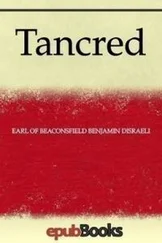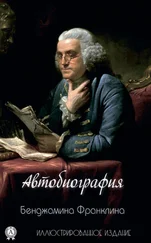Бенджамин Дизраэли - Coningsby
Здесь есть возможность читать онлайн «Бенджамин Дизраэли - Coningsby» весь текст электронной книги совершенно бесплатно (целиком полную версию без сокращений). В некоторых случаях можно слушать аудио, скачать через торрент в формате fb2 и присутствует краткое содержание. Год выпуска: 2014, Издательство: epubBooks Classics, Жанр: Классическая проза, на английском языке. Описание произведения, (предисловие) а так же отзывы посетителей доступны на портале библиотеки ЛибКат.
- Название:Coningsby
- Автор:
- Издательство:epubBooks Classics
- Жанр:
- Год:2014
- ISBN:нет данных
- Рейтинг книги:4 / 5. Голосов: 1
-
Избранное:Добавить в избранное
- Отзывы:
-
Ваша оценка:
- 80
- 1
- 2
- 3
- 4
- 5
Coningsby: краткое содержание, описание и аннотация
Предлагаем к чтению аннотацию, описание, краткое содержание или предисловие (зависит от того, что написал сам автор книги «Coningsby»). Если вы не нашли необходимую информацию о книге — напишите в комментариях, мы постараемся отыскать её.
Coningsby — читать онлайн бесплатно полную книгу (весь текст) целиком
Ниже представлен текст книги, разбитый по страницам. Система сохранения места последней прочитанной страницы, позволяет с удобством читать онлайн бесплатно книгу «Coningsby», без необходимости каждый раз заново искать на чём Вы остановились. Поставьте закладку, и сможете в любой момент перейти на страницу, на которой закончили чтение.
Интервал:
Закладка:
Coningsby
Or, The New Generation
Earl of Beaconsfield Benjamin Disraeli
Dedication
To Henry Hope
It is not because this work was conceived and partly executed amid the glades and galleries of the DEEPDENE that I have inscribed it with your name. Nor merely because I was desirous to avail myself of the most graceful privilege of an author, and dedicate my work to the friend whose talents I have always appreciated, and whose virtues I have ever admired.
But because in these pages I have endeavoured to picture something of that development of the new and, as I believe, better mind of England, that has often been the subject of our converse and speculation.
In this volume you will find many a thought illustrated and many a principle attempted to be established that we have often together partially discussed and canvassed.
Doubtless you may encounter some opinions with which you may not agree, and some conclusions the accuracy of which you may find cause to question. But if I have generally succeeded in my object, to scatter some suggestions that may tend to elevate the tone of public life, ascertain the true character of political parties, and induce us for the future more carefully to distinguish between facts and phrases, realities and phantoms, I believe that I shall gain your sympathy, for I shall find a reflex to their efforts in your own generous spirit and enlightened mind.
GROSVENOR GATE: May Day 1844.
Publishers' Note
As a novelist, Benjamin Disraeli belongs to the early part of the nineteenth century. "Vivian Grey" (1826–27) and "Sybil" (1845) mark the beginning and the end of his truly creative period; for the two productions of his latest years, "Lothair" (1870) and "Endymion" (1880), add nothing to the characteristics of his earlier volumes except the changes of feeling and power which accompany old age. His period, thus, is that of Bulwer, Dickens, and Thackeray, and of the later years of Sir Walter Scott—a fact which his prominence as a statesman during the last decade of his life, as well as the vogue of "Lothair" and "Endymion," has tended to obscure. His style, his material, and his views of English character and life all date from that earlier time. He was born in 1804 and died in 1881.
"Coningsby; or, The New Generation," published in 1844, is the best of his novels, not as a story, but as a study of men, manners, and principles. The plot is slight—little better than a device for stringing together sketches of character and statements of political and economic opinions; but these are always interesting and often brilliant. The motive which underlies the book is political. It is, in brief, an attempt to show that the political salvation of England was to be sought in its aristocracy, but that this aristocracy was morally weak and socially ineffective, and that it must mend its ways before its duty to the state could be fulfilled. Interest in this aspect of the book has, of course, to a large extent passed away with the political conditions which it reflected. As a picture of aristocratic life in England in the first part of the nineteenth century it has, however, enduring significance and charm. Disraeli does not rank with the great writers of English realistic fiction, but in this special field none of them has surpassed him. From this point of view, accordingly, "Coningsby" is appropriately included in this series.
Preface
'CONINGSBY' was published in the year 1844. The main purpose of its writer was to vindicate the just claims of the Tory party to be the popular political confederation of the country; a purpose which he had, more or less, pursued from a very early period of life. The occasion was favourable to the attempt. The youthful mind of England had just recovered from the inebriation of the great Conservative triumph of 1841, and was beginning to inquire what, after all, they had conquered to preserve. It was opportune, therefore, to show that Toryism was not a phrase, but a fact; and that our political institutions were the embodiment of our popular necessities. This the writer endeavoured to do without prejudice, and to treat of events and characters of which he had some personal experience, not altogether without the impartiality of the future.
It was not originally the intention of the writer to adopt the form of fiction as the instrument to scatter his suggestions, but, after reflection, he resolved to avail himself of a method which, in the temper of the times, offered the best chance of influencing opinion.
In considering the Tory scheme, the author recognised in the CHURCH the most powerful agent in the previous development of England, and the most efficient means of that renovation of the national spirit at which he aimed. The Church is a sacred corporation for the promulgation and maintenance in Europe of certain Asian principles, which, although local in their birth, are of divine origin, and of universal and eternal application.
In asserting the paramount character of the ecclesiastical polity and the majesty of the theocratic principle, it became necessary to ascend to the origin of the Christian Church, and to meet in a spirit worthy of a critical and comparatively enlightened age, the position of the descendants of that race who were the founders of Christianity. The modern Jews had long laboured under the odium and stigma of mediaeval malevolence. In the dark ages, when history was unknown, the passions of societies, undisturbed by traditionary experience, were strong, and their convictions, unmitigated by criticism, were necessarily fanatical. The Jews were looked upon in the middle ages as an accursed race, the enemies of God and man, the especial foes of Christianity. No one in those days paused to reflect that Christianity was founded by the Jews; that its Divine Author, in his human capacity, was a descendant of King David; that his doctrines avowedly were the completion, not the change, of Judaism; that the Apostles and the Evangelists, whose names men daily invoked, and whose volumes they embraced with reverence, were all Jews; that the infallible throne of Rome itself was established by a Jew; and that a Jew was the founder of the Christian Churches of Asia.
The European nations, relatively speaking, were then only recently converted to a belief in Moses and in Christ; and, as it were, still ashamed of the wild deities whom they had deserted, they thought they atoned for their past idolatry by wreaking their vengeance on a race to whom, and to whom alone, they were indebted for the Gospel they adored.
In vindicating the sovereign right of the Church of Christ to be the perpetual regenerator of man, the writer thought the time had arrived when some attempt should be made to do justice to the race which had founded Christianity.
The writer has developed in another work ('Tancred') the views respecting the great house of Israel which he first intimated in 'Coningsby.' No one has attempted to refute them, nor is refutation possible; since all he has done is to examine certain facts in the truth of which all agree, and to draw from them irresistible conclusions which prejudice for a moment may shrink from, but which reason cannot refuse to admit.
D.
GROSVENOR GATE: May 1894.
Book I.
Chapter I.
It was a bright May morning some twelve years ago, when a youth of still tender age, for he had certainly not entered his teens by more than two years, was ushered into the waiting–room of a house in the vicinity of St. James's Square, which, though with the general appearance of a private residence, and that too of no very ambitious character, exhibited at this period symptoms of being occupied for some public purpose.
Читать дальшеИнтервал:
Закладка:
Похожие книги на «Coningsby»
Представляем Вашему вниманию похожие книги на «Coningsby» списком для выбора. Мы отобрали схожую по названию и смыслу литературу в надежде предоставить читателям больше вариантов отыскать новые, интересные, ещё непрочитанные произведения.
Обсуждение, отзывы о книге «Coningsby» и просто собственные мнения читателей. Оставьте ваши комментарии, напишите, что Вы думаете о произведении, его смысле или главных героях. Укажите что конкретно понравилось, а что нет, и почему Вы так считаете.
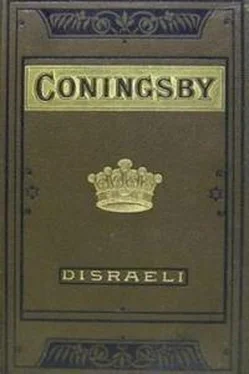
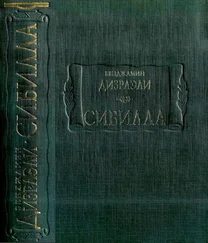
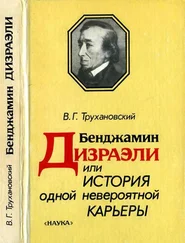
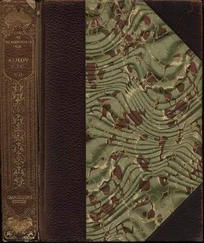

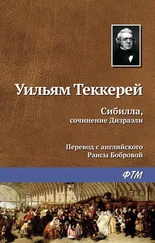
![Мелани Бенджамин - Госпожа отеля «Ритц» [litres]](/books/384861/melani-bendzhamin-gospozha-otelya-ritc-litres-thumb.webp)

